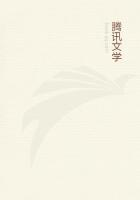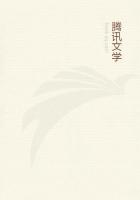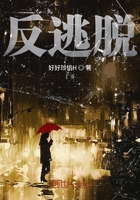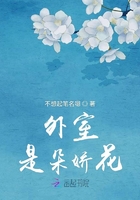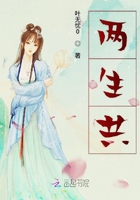The metaphors and comparisons of Dante harmonise admirably with that air of strong reality of which I have spoken.They have a very peculiar character.He is perhaps the only poet whose writings would become much less intelligible if all illustrations of this sort were expunged.His similes are frequently rather those of a traveller than of a poet.He employs them not to display his ingenuity by fanciful analogies,--not to delight the reader by affording him a distant and passing glimpse of beautiful images remote from the path in which he is proceeding, but to give an exact idea of the objects which he is describing, by comparing them with others generally known.The boiling pitch in Malebolge was like that in the Venetian arsenal:--the mound on which he travelled along the banks of Phlegethon was like that between Ghent and Bruges, but not so large:--the cavities where the Simoniacal prelates are confined resemble the Fonts in the Church of John at Florence.Every reader of Dante will recall many other illustrations of this description, which add to the appearance of sincerity and earnestness from which the narrative derives so much of its interest.
Many of his comparisons, again, are intended to give an exact idea of his feelings under particular circumstances.The delicate shades of grief, of fear, of anger, are rarely discriminated with sufficient accuracy in the language of the most refined nations.A rude dialect never abounds in nice distinctions of this kind.Dante therefore employs the most accurate and infinitely the most poetical mode of marking the precise state of his mind.Every person who has experienced the bewildering effect of sudden bad tidings,--the stupefaction,--the vague doubt of the truth of our own perceptions which they produce,--will understand the following simile:--"I was as he is who dreameth his own harm,--who, dreaming, wishes that it may be all a dream, so that he desires that which is as though it were not." This is only one out of a hundred equally striking and expressive similitudes.The comparisons of Homer and Milton are magnificent digressions.It scarcely injures their effect to detach them from the work.Those of Dante are very different.
They derive their beauty from the context, and reflect beauty upon it.His embroidery cannot be taken out without spoiling the whole web.I cannot dismiss this part of the subject without advising every person who can muster sufficient Italian to read the simile of the sheep, in the third canto of the Purgatorio.Ithink it the most perfect passage of the kind in the world, the most imaginative, the most picturesque, and the most sweetly expressed.
No person can have attended to the Divine Comedy without observing how little impression the forms of the external world appear to have made on the mind of Dante.His temper and his situation had led him to fix his observation almost exclusively on human nature.The exquisite opening of the eighth* canto of the Purgatorio affords a strong instance of this.(I cannot help observing that Gray's imitation of that noble line "Che paia 'lgiorna pianger che si muore,"--is one of the most striking instances of injudicious plagiarism with which I am acquainted.Dante did not put this strong personification at the beginning of his description.The imagination of the reader is so well prepared for it by the previous lines, that it appears perfectly natural and pathetic.
Placed as Gray has placed it, neither preceded nor followed by anything that harmonises with it, it becomes a frigid conceit.
Woe to the unskilful rider who ventures on the horses of Achilles!)He leaves to others the earth, the ocean, and the sky.His business is with man.To other writers, evening may be the season of dews and stars and radiant clouds.To Dante it is the hour of fond recollection and passionate devotion,--the hour which melts the heart of the mariner and kindles the love of the pilgrim,--the hour when the toll of the bell seems to mourn for another day which is gone and will return no more.
The feeling of the present age has taken a direction diametrically opposite.The magnificence of the physical world, and its influence upon the human mind, have been the favourite themes of our most eminent poets.The herd of bluestocking ladies and sonneteering gentlemen seem to consider a strong sensibility to the "splendour of the grass, the glory of the flower," as an ingredient absolutely indispensable in the formation of a poetical mind.They treat with contempt all writers who are unfortunately nec ponere lucum Artifices, nec rus saturum laudare.
The orthodox poetical creed is more Catholic.The noblest earthly object of the contemplation of man is man himself.The universe, and all its fair and glorious forms, are indeed included in the wide empire of the imagination; but she has placed her home and her sanctuary amidst the inexhaustible varieties and the impenetrable mysteries of the mind.
In tutte parti impera, e quivi regge;
Quivi e la sua cittade, e l'alto seggio.
(Inferno, canto i.)
Othello is perhaps the greatest work in the world.From what does it derive its power? From the clouds? From the ocean?
From the mountains? Or from love strong as death, and jealousy cruel as the grave? What is it that we go forth to see in Hamlet? Is it a reed shaken with the wind? A small celandine?
A bed of daffodils? Or is it to contemplate a mighty and wayward mind laid bare before us to the inmost recesses? It may perhaps be doubted whether the lakes and the hills are better fitted for the education of a poet than the dusky streets of a huge capital.

